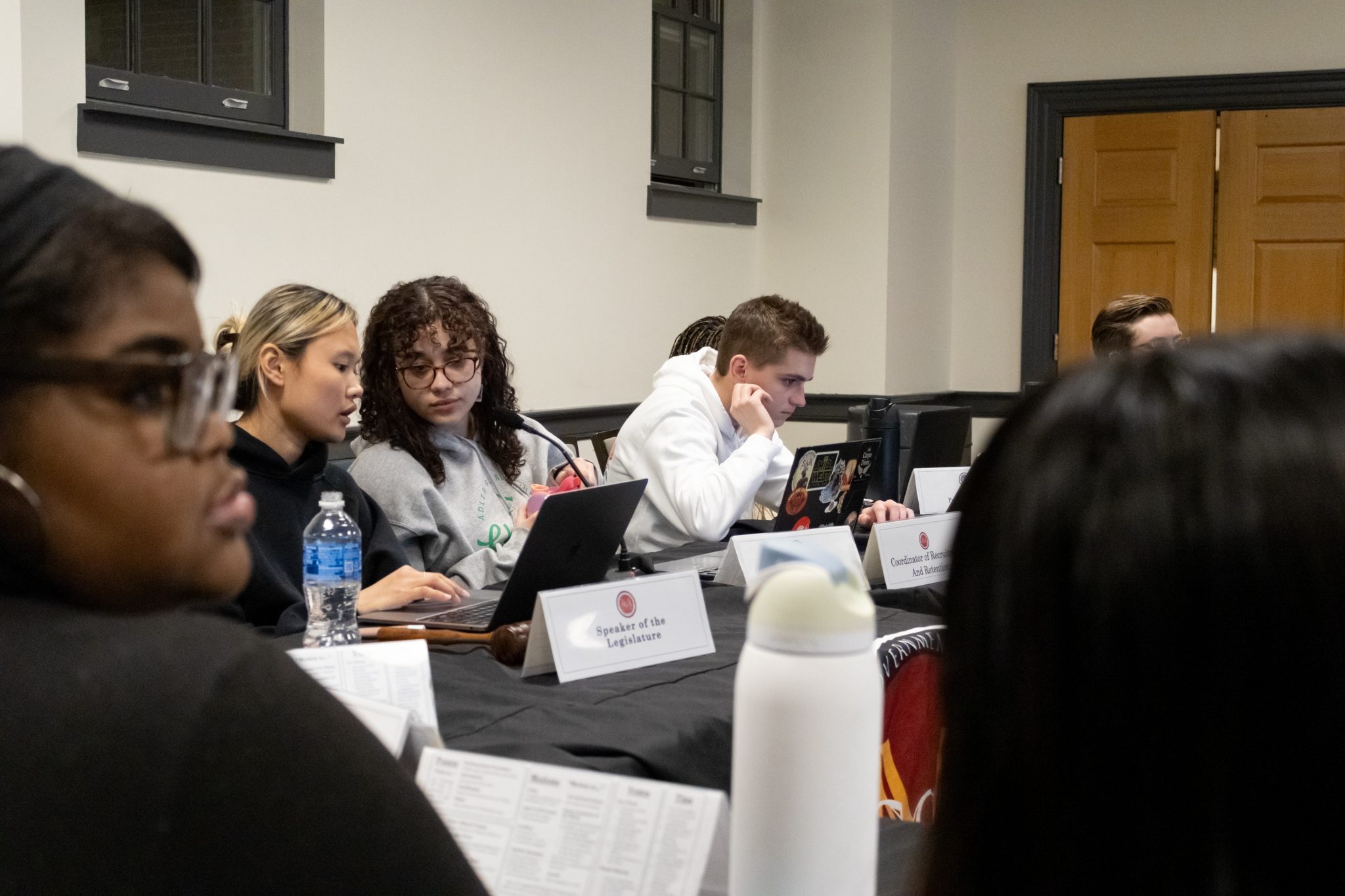The University of Maryland SGA unanimously approved a resolution Wednesday to endorse several Maryland General Assembly bills and further the body’s federal and state lobbying efforts.
Under the resolution, the Student Government Association will advocate for more than 40 state bills, which include legislation on climate, student accessibility and food insecurity. The resolution comes weeks before SGA officers will lobby for these bills in Annapolis, according to student body president Reese Artero.
“We have students here who rely on every single dollar, every single penny, and making sure that those all go to useful programs that can support our students and support our communities [is important],” the senior criminology and criminal justice major said.
Artero told The Diamondback that the body also considered the uncertain federal government landscape when deciding which issues to focus on,
Addressing food insecurity on campus became a legislative priority after the body saw the results of this university’s food access and well-being survey, Artero explained.
[UMD SGA passes act demanding protections for undocumented, international students]
SGA has advocated for amendments to the proposed Hunger Free Campus grant, which would would provide at least $25,000 to higher education institutions and centers across the state to combat food insecurity.
Artero said this university should receive more funding from the proposed grant because of its larger size compared to other University System of Maryland schools. Funding should be proportional based on the level of food insecurity at a campus, Artero noted.
The SGA also endorsed a bill that requires certain higher education institutions to train instructors on working with students with disabilities, SGA chief of staff and sophomore public policy major Charles Kay told The Diamondback.
The bill would also require the Maryland Higher Education Commission to develop a model training program for instructors on accommodations for students with disabilities.
“Especially considering the size of our institution and looking at some of how we see students with disabilities interacting in classrooms and on campus, we are finding it more and more difficult to look for funding to update those things,” Artero said.
SGA also wants state lawmakers to continue funding this university’s TerpsEXCEED program — a two-year program for students with intellectual disabilities.
The program helps students with disabilities get job and educational opportunities, Artero said.
[Maryland could face up to $1.5 billion in additional budget cuts]
SGA also endorsed multiple climate-related bills.
One would require sports venue owners and higher education institutions to allow people to bring reusable beverage containers to sporting events, while another would require the Maryland Department of Labor to adopt energy conservation requirements.
The state is also grappling with $111 million in proposed budget cuts for the University System of Maryland under Gov. Wes Moore’s proposed fiscal year 2026 budget. The cut comes as the state navigates a $3 billion deficit.
The budget cuts will make SGA’s lobbying efforts more difficult, she added.
Moving forward, Kelvin Reyes Hernandez, SGA’s North Hill representative, hopes SGA’s lobbying efforts will help pass many bills this legislative session.
“It’s super important for us to really advocate for these issues,” the freshman economics major said.



